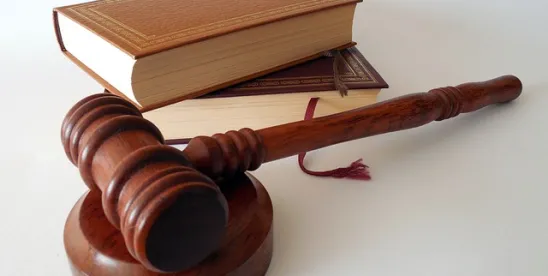In James Rivest v. Hauppauge Digital, Inc., C.A. No. 2019-0848-PWG (Del. Ch. Aug. 3, 2020), the Delaware Court of Chancery examined the circumstances in which the Court will set aside a default judgment under Court of Chancery Rule 60(b)(1). The Court’s decision illustrates the context in which a party’s failure to timely respond may warrant relief from a previously issued court order. It also highlights the Court’s willingness to consider the unique challenges imposed by the COVID-19 pandemic in exercising its discretion.
Plaintiff James Rivest (“Rivest”), a beneficial holder of capital stock of defendant Hauppauge Digital, Inc. (“Hauppauge”), delivered a demand letter to Hauppauge seeking to inspect Hauppauge’s financial records for the financial years 2016, 2017, and 2018 for the purpose of determining the value of Hauppauge stock. Upon receiving no response to the demand letter, Rivest filed a complaint with the Delaware Court of Chancery to compel inspection under 8 Del. C. § 220. When Hauppauge again failed to respond to Rivest’s complaint, Rivest filed a motion for default judgment.
In response, the Court scheduled a hearing on the motion to occur in April 2020. Due to the COVID-19 pandemic, the hearing was cancelled and Hauppauge was instructed to instead provide a written response to the Court by April 20, 2020. After Hauppauge provided no such response, the Court entered a default judgment against Hauppauge on the morning of April 24, 2020. Later that day, the Court received a response from Hauppauge’s Chief Executive Officer detailing Hauppauge’s reasons for not producing the requested documents. The response had been sent by mail and was dated April 20, 2020. In response, Rivest delivered a written response to the Court, arguing that Hauppauge’s letter was legally deficient because (a) a corporation must be represented by counsel; and (b) it provided no basis for vacating the default judgment. Shortly thereafter, Hauppauge’s Chief Executive Officer sent another letter to the Court. The Court responded that there was nothing pending before the Court because Hauppauge was not represented by counsel, but provided Hauppauge an additional 10 days to file a written response.
Enlisting counsel and following subsequent correspondence with the Court, Hauppauge filed a motion to vacate the default judgment under Rule 60(b)(1). In its motion to vacate, Hauppauge argued that it made a good faith effort to comply with the Court’s instructions, given that the employee that was responsible for responding to Rivest was furloughed in response to COVID-19 issues and its belief that it could respond without counsel. It also argued that it had a meritorious defense seeking confidentiality restrictions with respect to the requested nonpublic financial information.
In evaluating whether to vacate a default judgment under Rule 60(b)(1), the Court will consider (1) whether the defendant’s culpable conduct led to the default and, if so, whether it was excusable; (2) whether the defendant has a meritorious defense; and (3) whether the plaintiff will be prejudiced.
Master in Chancery Patricia W. Griffin reasoned that, while Hauppauge’s response was untimely, it was received within four days of the date designated by the Court and within several hours of Court’s issuance of the default judgment. Also recognizing the impact of COVID-19, the Court noted that it was forced to implement new procedures—namely, the requirement that a party provide a written response to a motion for default judgment rather than attend a traditional, in-person hearing—and that Hauppauge had furloughed many of its staff, including the person tasked with addressing this matter. The Court concluded that, in connection with unclear language contained in the initial hearing notice, the unusual circumstances of COVID-19 rendered Hauppauge’s delay in response to be the result of excusable neglect.
Next, Master in Chancery Griffin evaluated whether Hauppauge sufficiently demonstrated the existence of a meritorious defense, which requires a showing of a possibility of a different outcome than that of the default judgment. Arguing that the absence of confidentiality provisions in the default judgment would be harmful to its business on the basis that its competitors could discover such information, which was not otherwise publicly available, Hauppauge asserted that the default judgment provided insufficient protection. The Court agreed with Hauppauge’s rationale, reasoning that, while Section 220 inspections are not entitled to a presumption of confidentiality, it was within the Court’s authority to impose reasonable restrictions following the weighing of interests of the parties. Recognizing the potential for there to be a different outcome following deeper inquiry, the Court found in favor of Hauppauge.
Finally, Master in Chancery Griffin evaluated whether Rivest was prejudiced by the delay in Hauppauge’s response. Relying on public policy favoring a decision on the merits, the Court determined that grating Hauppauge’s motion did not substantially prejudice Rivest. Based on her reasoning, Master in Chancery Griffin recommended that the Court grant Hauppauge’s motion to vacate the default judgment.
In a slight nod to Rivest, Master in Chancery Griffin concluded the letter opinion by recognizing the delays that had occurred and stating her intent to resolve the matter promptly in the future.
James Rivest v. Hauppauge Digital, Inc., C.A. No. 2019-0848-PWG (Del. Ch. Aug. 3, 2020)





 />i
/>i
